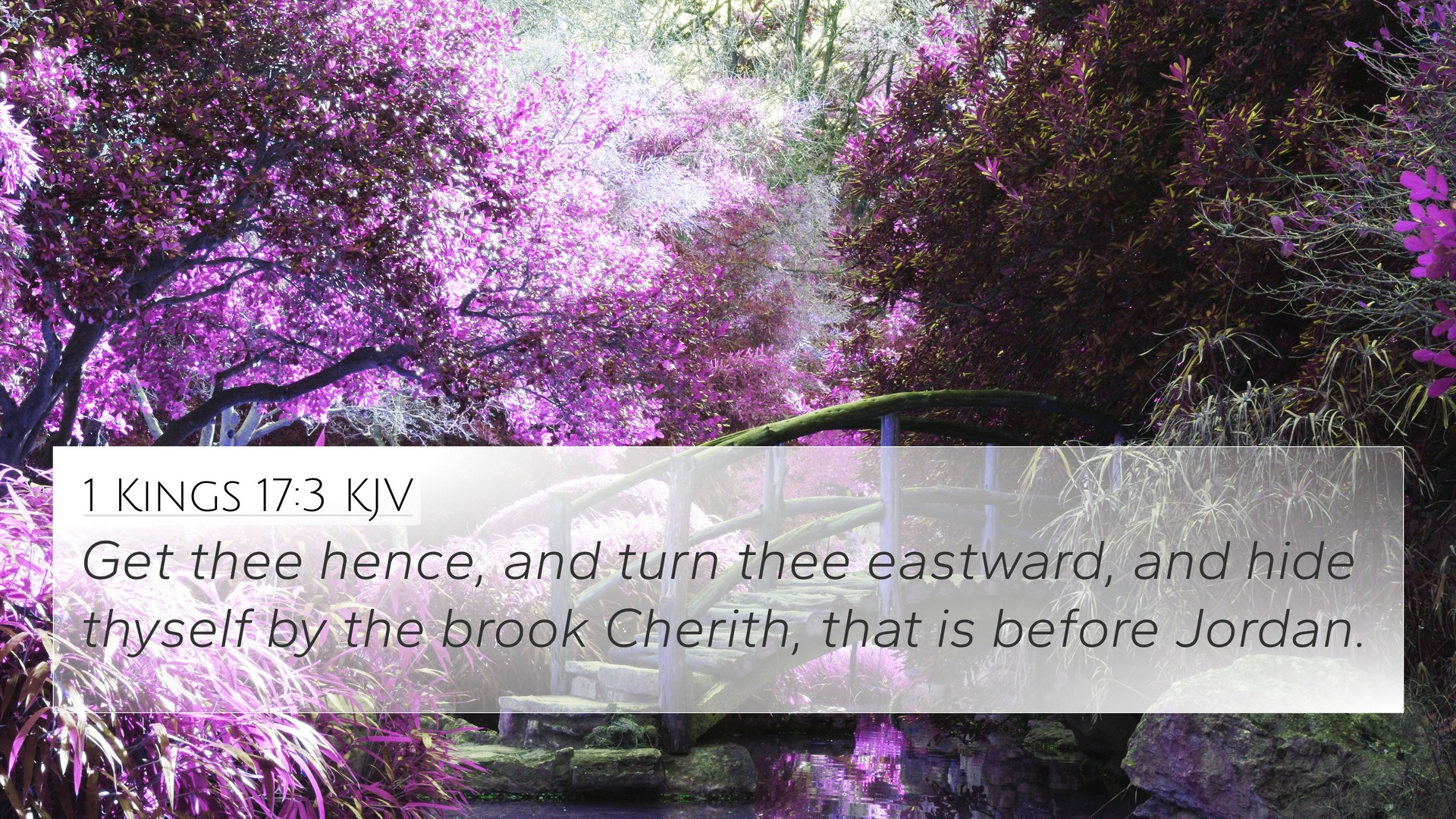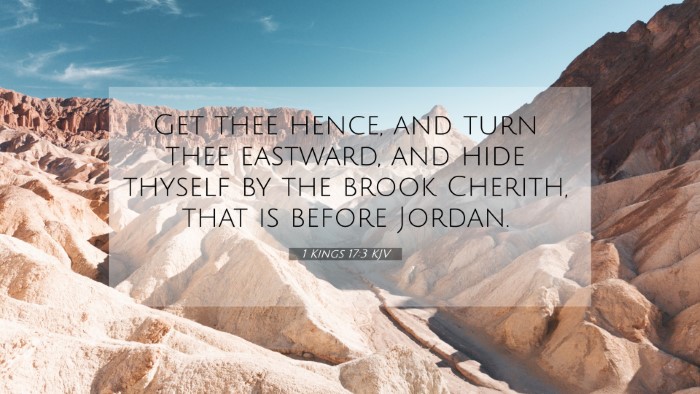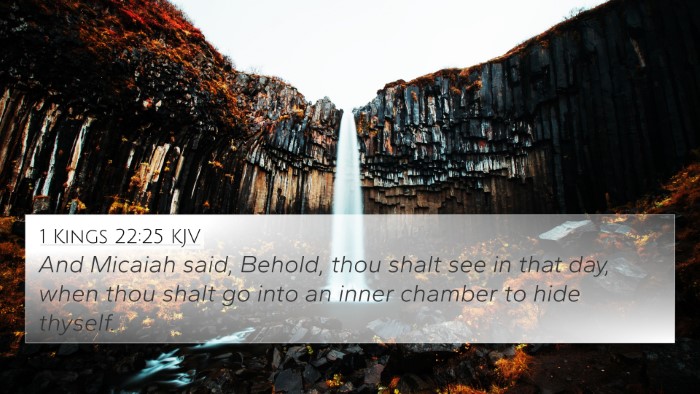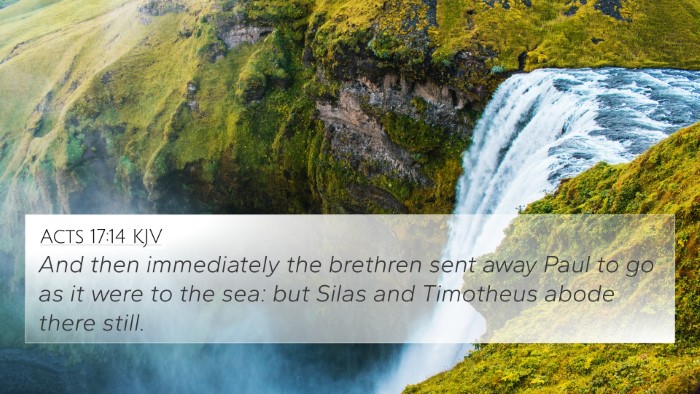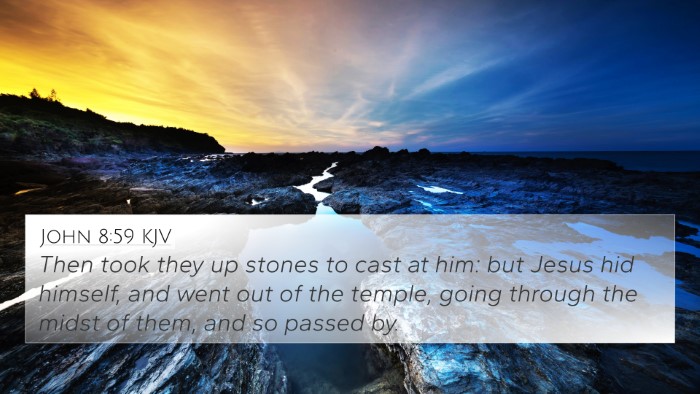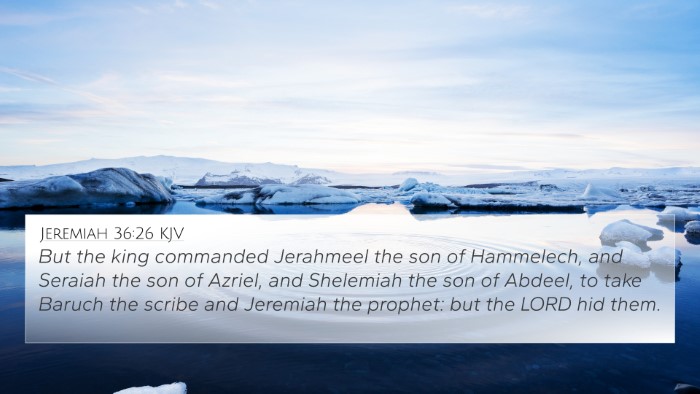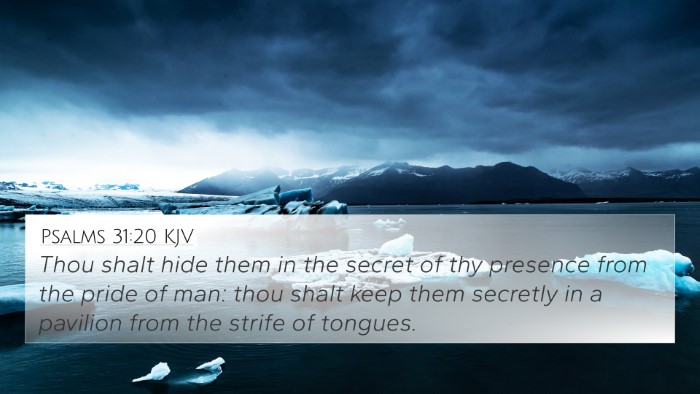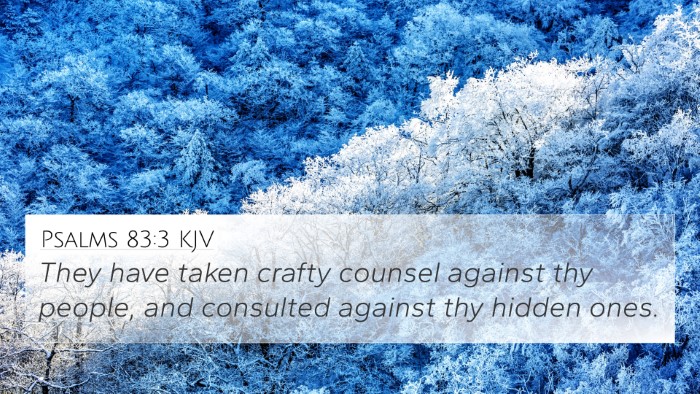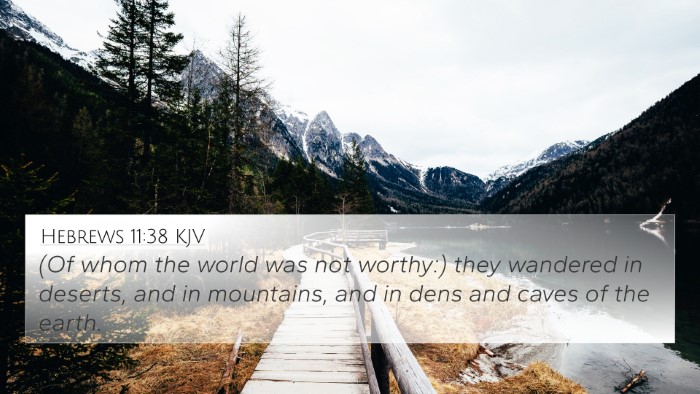Understanding 1 Kings 17:3
1 Kings 17:3 states: "Depart from here and turn eastward and hide yourself by the brook Cherith, which is east of the Jordan." This verse marks a pivotal moment in the life of the prophet Elijah as he embarks on a divine mission amidst a time of conflict and drought in Israel.
Summary of Verse Meaning
This verse encapsulates God's guidance to Elijah, highlighting the importance of obedience and reliance on divine direction during challenging times. Public domain commentaries contribute valuable insights into this passage:
- Matthew Henry: Henry emphasizes God's protective measures for Elijah. By directing him to the brook Cherith, God provides a refuge during a perilous time. This act serves as a reminder of divine providence, suggesting that when God sends us on a mission, He also ensures our sustenance and protection.
- Albert Barnes: Barnes notes that the instruction to hide reflects the dangers Elijah faced. His retreat symbolizes the necessity of seeking safety and divine guidance when confronted by adversaries. Barnes also interprets the brook as a symbol of God's provision, underscoring that even in isolation, one can find sustenance through faith.
- Adam Clarke: Clarke adds that the location by the brook Cherith is significant. It illustrates both separation from the corrupt society that rejected God and the intimate relationship Elijah has with the Creator. This separation is critical for his spiritual preparation, emphasizing the need for solitude with God in times of turmoil.
Cross-References and Thematic Connections
Understanding 1 Kings 17:3 benefits from exploring related Bible verses that reinforce or illuminate its themes. Here are several cross-references:
- Jeremiah 49:16: Similar themes of divine protection and hidden dangers emphasize reliance on God in troubled times.
- Psalms 91:1-2: This passage speaks of the safety found in dwelling in God's presence, reinforcing the importance of seeking refuge in Him.
- Matthew 4:1: Just as Elijah was led into the wilderness, Jesus was taken into the wilderness to be tempted, showcasing a pattern of divine leading in critical moments.
- Isaiah 40:31: This verse encourages waiting upon the Lord for strength, connecting to the need for patience and trust while in the wilderness.
- Luke 4:25-26: Jesus references Elijah as an example of God's provision in times of national crisis, linking New Testament narratives with Old Testament accounts.
- 1 Kings 17:9: The instruction to go to Zarephath follows God's leading, showing continuity in divine direction.
- James 5:17-18: This New Testament passage highlights Elijah’s role as a prophet, illustrating his significance in both the Old and the New Testament.
Tools for Bible Cross-Referencing
For those studying 1 Kings 17:3, various tools can enhance your understanding of scripture connections:
- Bible Concordance: A useful tool for identifying relevant verses that correspond with specific concepts.
- Bible Cross-Reference Guide: Helps in locating verses with similar themes and messages.
- Bible Reference Resources: Includes various commentaries and studies that offer insights into scriptures.
- Cross-reference Bible Study Methods: Techniques for studying interconnected verses across the Bible.
Inter-Biblical Dialogue
1 Kings 17:3 demonstrates the ongoing interaction between Old and New Testament teachings. The themes of divine provision, protection, and the call to faithful witness resonate throughout scripture. The prophet Elijah's story invites readers to explore deeper thematic connections and developments of God's covenant throughout the Bible. This enhances our understanding of God’s character and His faithfulness as outlined in both Testaments.
Conclusion
In summary, 1 Kings 17:3 serves not only as a directive to Elijah but also as a profound reminder of God's care and guidance in our lives. Through careful examination of this verse alongside related scriptures, one can gain richer insights into God's plan and the continuity of His message throughout the Bible. This encourages further study and reflection on how we, too, can respond to divine guidance in our lives.
